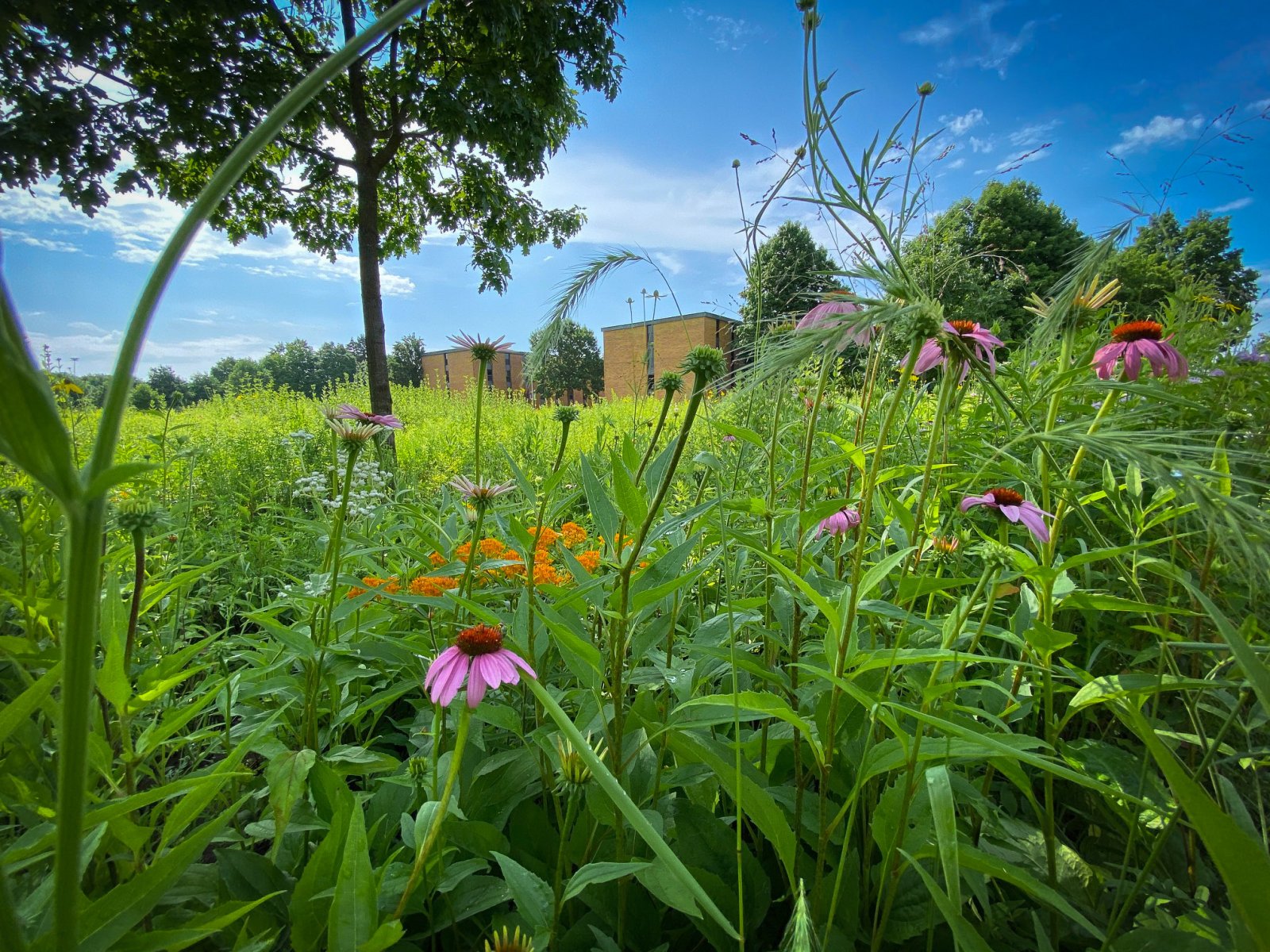Eleven years.
That’s how long the Intergovernmental Panel on Climate Change gave humanity to curb global emissions by 45 percent and avoid the most dire impacts of climate change.Since the timeline was outlined in the IPCC’s Special Report last October, things look grim. The Trump administration has continued to roll back emissions regulations, thousands of acres burned in California and projections for sea-level rise are much worse than scientists thought.
The combination of urgency and inaction is daunting, particularly for young people who face an uncertain future. A growing body of research explores the intersections of climate change and mental health with terms like eco-anxiety, climate grief and even “pre-traumatic stress,” a term used by forensic psychiatrist Lise Van Susteren that describes anxiety caused by imagining future disasters.
Dealing with the weight of crisis is an ongoing process for students and professors at Goshen College. It requires balance and perspective.
For the past six or seven years, Ryan Sensenig, professor of biology, has offered a class called Roots of the Environmental Crisis, which examines the causes of climate change from many different disciplines.
“It feels like in the last two years, the last three years, students feel the world caving in on them a little more,” Sensenig said.
The complex nature of climate change makes it fundamentally different from past environmental issues that were solved with more technical fixes, Sensenig said.
“It’s like this is the problem with the ozone hole, this is how we fix it, we ban CFCs, voila,” he said.
But climate change has no simple fix.
“When crises befall us, they aren’t really things that get solved,” Sensenig said. “It calls us to action for sure, but it’s not a simple problem.”
Quick solutions are impossible, but being part of the problem is all too easy, which can lead students to feel guilty.
Jose Chiquito, a senior, said he often struggles with guilt in choices he makes.
Chiquito described the mental calculus he uses to decide on a meal out to eat. Local is better than a chain, but fast food is cheaper, the thinking goes.
A veggie option at Taco Bell is better for the environment than a McChicken, but “am I getting in my car and driving there?” he asks himself.
“Yes,” he said. “I’m feeling guilty because, no matter what I do, there’s some impact.”
Emily Hilton-Nickel, also a senior, said many students might be carrying a similar guilt.
“Logically, it’s not our fault,” she said. “But because we know as much as we do now, allowing ourselves to do anything that doesn’t line up with that knowledge and that ethic feels terrible and wrong.”
When grief and guilt turn into despair, people disengage entirely. In her decades of anti-racism organizing, Regina Shands Stoltzfus, professor of peace, justice and conflict studies, has questioned her work during low points.
“Is this even worth it? Does it matter? Does it make a difference?” she asked herself. “And that’s not helpful. It didn’t relieve the anxiety.”
Moving toward a balance between awareness and support has been key in maintaining her work.
“I need to stay informed, but I need to balance it,” she said.
Stoltzfus recommends being intentional about being in relationship with others and having fun.
“Cook together; go to a movie,” she said. “Our relationship with each other can’t just be about this work.”
Stoltzfus finds her own joy in the predictability of romantic comedies. She made her own rom-com bingo sheet to check off the cliches.
For Sensenig, there is joy in watching his four cows graze the prairie grass at his farm.
“It feels very practical and very tangible,” he said.
If you are experiencing worry, grief or anxiety from climate change, free and confidential counseling services are available for all students.
Contact campus counselors Rick Eby (rleby@goshen.edu), Jennifer Miller (jamiller@goshen.edu), and Rachele DeFrancesco (rdefrancesco@goshen.edu).



